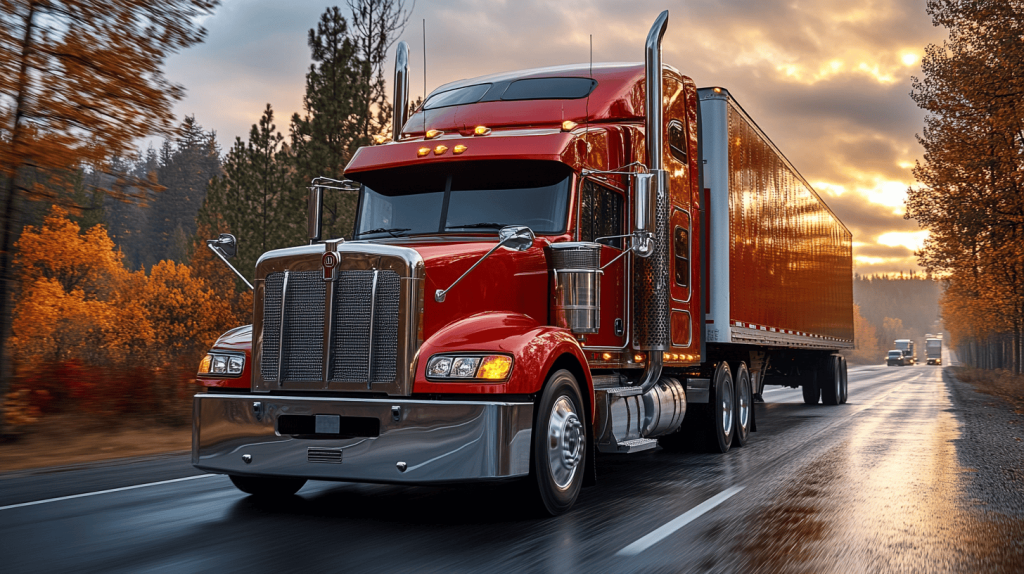Ensuring Safe and Compliant Heavy Haul Transport in Connecticut
Freedom Heavy Haul can offer expedited Pickup and Delivery for any size shipment anywhere in the USA. Contact us today for No Hassle, No Pressure Pricing.
Transporting oversized or overweight loads on Connecticut’s roads requires strict adherence to regulations and safety standards. Heavy haul transport, by its nature, involves unique challenges that must be carefully managed to prevent accidents, protect public infrastructure, and comply with state laws. Understanding the intricacies of heavy haul transport can help your business navigate this complex process effectively and ensure the safe movement of goods.
Regulatory Compliance for Heavy Haul Transport in Connecticut
Regulations form the backbone of any successful heavy haul operation in Connecticut. These rules ensure that oversized and overweight loads do not pose a danger to public safety or cause damage to state infrastructure. Working with a professional provider who understands Connecticut’s heavy haul requirements can streamline compliance and reduce the risk of fines or delays.
Permitting Requirements
Heavy haul loads in Connecticut require specific permits from the Connecticut Department of Transportation (CTDOT). Permits are designed to specify the conditions under which heavy cargo can travel. This process includes submitting details such as the load dimensions, weight, and proposed travel route. Depending on the size and weight of your load, different levels of permits may be required. It is critical to ensure that your load does not exceed the approved limits, as exceeding these could result in fines or transportation delays.
Weight Limits and Axle Restrictions
Connecticut enforces strict weight limits to protect its roads and bridges. While typical trucks have a gross vehicle weight (GVW) limit of 80,000 pounds, heavy haulers often exceed this and must adhere to axle weight limits. By partnering with a service that prioritizes compliance with Connecticut’s axle regulations, you can reduce the risk of road damage and avoid penalties.
Safety Protocols for Heavy Haul Transport
Ensuring safety during heavy haul operations is a top priority. Oversized loads can pose serious hazards to both your crew and the public if not properly managed. Connecticut has established several safety protocols aimed at minimizing these risks.

Load Securing and Inspection Procedures
Every load must be securely fastened to prevent any shifting or movement during transportation. It is crucial that you perform thorough inspections before starting your journey. These inspections check not only the security of the load but also the condition of your vehicle and equipment. Adhering to the Federal Motor Carrier Safety Administration (FMCSA) guidelines will help ensure that your load remains secure throughout the trip.
Escort Vehicles and Pilot Cars
When transporting especially large or wide loads, Connecticut requires escort vehicles, also known as pilot cars, to ensure safe passage. These vehicles are crucial in guiding drivers around tight turns, under low-clearance bridges, and through congested areas. Using pilot cars effectively enhances safety for both your crew and the public.
Driver Qualifications and Certifications
Heavy haul drivers must be highly trained and experienced to handle the challenges that come with moving oversized loads. In Connecticut, drivers transporting large cargo are expected to have specialized training and, in some cases, certifications. Your drivers should be proficient in navigating complex routes, managing the load’s movement, and reacting quickly in case of emergencies.
Route Planning and Logistics
Route planning is essential when transporting heavy haul cargo across Connecticut. Poor planning can lead to delays, additional costs, and potential road damage.
Pre-Approved Routes for Heavy Haul Transport
The CTDOT has designated specific routes for oversized and overweight loads. These routes are designed to handle the unique demands of heavy haul transport, avoiding low-clearance bridges, narrow roads, and weak infrastructure. Choosing an approved route is not just a regulatory requirement; it ensures that your load travels safely from origin to destination.
Managing Traffic and Road Conditions
Large cargo often requires adjustments to normal traffic flow, and Connecticut’s weather can impact travel. Coordinating with local authorities and staying informed about weather conditions are key for safe heavy haul transport.
Infrastructure Considerations
Connecticut’s infrastructure plays a crucial role in determining how heavy loads can safely travel across the state. Overloading roads or bridges can cause significant damage and create hazards for all road users.

Assessing Bridge and Pavement Capacity
Not all roads and bridges in Connecticut are equipped to handle the weight of heavy haul loads. Bridges, in particular, require careful analysis to ensure that they can safely support the extra weight. Many oversized loads must pass over critical bridges that have strict weight restrictions. Failing to account for these restrictions can lead to serious legal and financial repercussions.
Overhead Clearance and Road Width
When transporting tall loads, overhead clearance must be a priority. This includes bridges, power lines, and traffic lights. Planning your route to avoid low-clearance obstacles will help prevent damage to infrastructure and delays in your schedule. Road width is another important factor. Narrow roads may make it difficult for your vehicle to maneuver, especially in busy urban areas or on winding rural roads.
Risk Management in Heavy Haul Transport
Heavy haul transport carries inherent risks, from potential damage to infrastructure to accidents and breakdowns. Effective risk management strategies can reduce these risks and protect both your business and the public. Investing in comprehensive risk management is a smart choice for heavy haulers in Connecticut.
Insurance Requirements for Heavy Haul Transport
Heavy haul transport requires specialized insurance coverage that accounts for the increased risks involved. In Connecticut, you are required to have sufficient insurance to cover potential damages to infrastructure, other vehicles, and your load. This coverage is an essential part of risk management, offering protection against unexpected incidents that could otherwise result in significant financial losses.
Incident Response Planning
Accidents can happen, even with meticulous planning. Having a response plan in place is crucial for minimizing damage and ensuring a quick resolution. This plan should outline steps for notifying authorities, clearing the load from the road, and arranging for alternative transport if needed. Quick action can help limit disruptions and protect your business from liability.
Connecticut’s Specific Regulations
Each state has its own rules for heavy haul transport, and Connecticut’s regulations are particularly strict to protect public infrastructure and ensure safety. Familiarity with Connecticut-specific regulations helps keep operations compliant and safe.
Oversize/Overweight Load Limits
Connecticut has specific rules for oversize and overweight loads that exceed a certain threshold. Loads over 14 feet high, 16 feet wide, or 200,000 pounds require additional permits and, in many cases, police escorts. These loads often present additional challenges and may require special planning to ensure their safe passage through the state.

Superload Permits
For extremely large or heavy loads, Connecticut issues superload permits. These permits require a detailed analysis of the potential impact of the load on the state’s infrastructure, including bridges and roadways. If you plan to transport a superload, you will need to submit engineering studies and coordinate with the CTDOT to develop a safe and approved route.
Conclusion
Heavy haul transport in Connecticut is a complex process that requires careful planning, attention to regulations, and a commitment to safety. By understanding regulatory compliance, safety protocols, route planning, infrastructure considerations, and risk management, you can navigate the challenges of moving oversized and overweight loads. Partnering with a trusted provider helps ensure safe and compliant heavy haul services in Connecticut, protecting both your crew and the state’s infrastructure.







